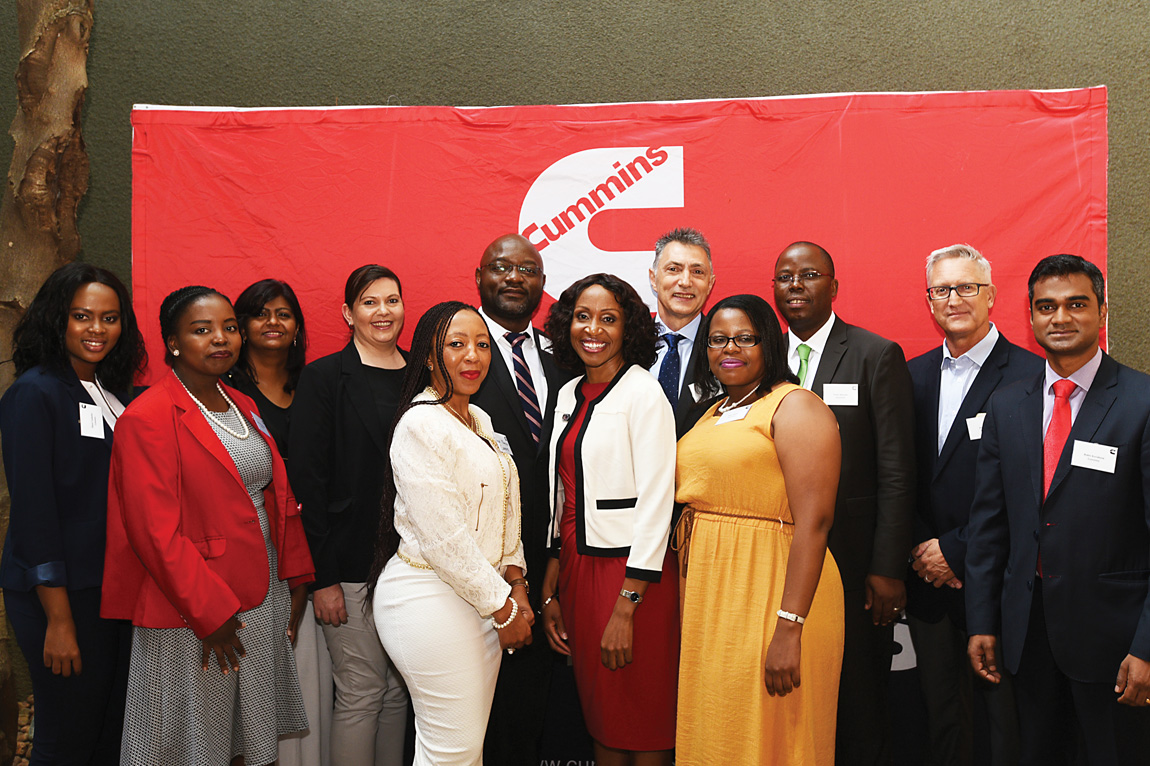Technical training and skills get a turbodiesel boost

I recently had a one-on-one with Thierry Pimi, MD of Cummins Southern Africa – a man who is passionate about growing his company, boosting the continent and empowering its youth.
Cummins is on a really good wicket at the moment. Last year the company met and exceeded its annual plan, while achieving UD$ 20 billion in revenue worldwide. In southern Africa the team had an equally impressive year – but it is what is planned for the future that is the most exciting.
For Pimi, this involves a focus on “the recruitment and development of the best talent on the continent”.
“We are in Africa and South Africa for the long run and are going full steam ahead in developing our infrastructure investment. Corporate social investment (CSI) to improve the communities in which we do business is one of our four strategic objectives on the continent. Our key strategy is, therefore, to build talent and capability in order to deliver the world-class service that we commit to our customers,” he begins.
This has manifested in the company’s first Technical Education for Communities (TEC) programme in the country. In partnership with Komatsu SA, the programme will launch in April at the Sedibeng Technical Vocational Education and Training (TVET) College.
“A large number of our employees are technical people; in Africa we need more field service capability to support the product. We don’t just find them anywhere … so we designed a curriculum to augment what is offered at technical and vocational schools,” Pimi explains.
This does not mean that all graduates will necessarily become employees of Cummins, as Pimi adds: “We have not invested in the TEC programme only to train our own people … we have invested because we would like to improve the employability of the learners who come from these disadvantaged communities.
“They will be qualified to work on certain Cummins models, so if they want to work for Cummins, or a customer of the company, they will already have accreditation for certain engine models.”
At the college, Cummins has trained the teachers and created a full lab where the intricacies of the mechanics and electronics of modern diesel engines can be taught.
An important component of the programme is the inclusion of soft skills. Learners are taught how to conduct themselves in the world of work, during interviews and when interacting with their peers, as well as the etiquette required when dealing with customers.
“Equipped with these skills, the learners will be ready to enter the world of work,” Pimi adds, mentioning that the learners admitted to the TEC programme are among the best graduates from the Sedibeng TVET College.
Having explained that the African TEC programme was initially launched in Morocco in 2012, and then in Nigeria in 2015, Pimi’s excitement about the prospects of the South African programme is palpable.
“This is probably our best launch, considering the excitement and engagement of our stakeholders (including Komatsu, Sedibeng, the Department of Education and merSETA) and their commitment to making this project sustainable. We are so excited about how well this is going and I’m sure we can push to open more colleges!” he beams.
More colleges will produce a bigger pool of skilled employees, which can only benefit our industry. Well done, Cummins – we hope to see many more TEC programme colleges popping up soon!
Published by
Focus on Transport
focusmagsa




